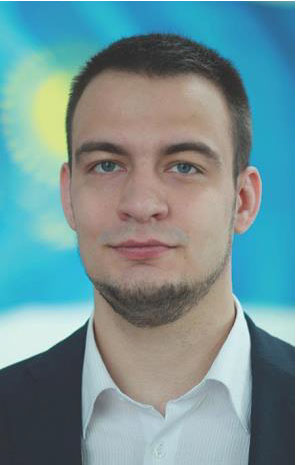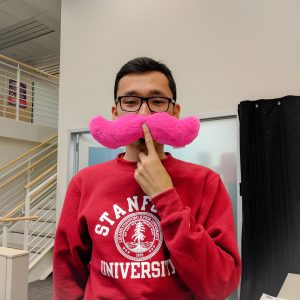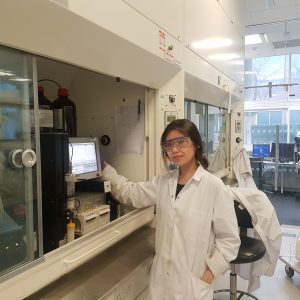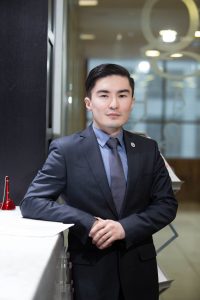Mentors profile


Tazhi Kulzhan
Hi, My name is Tazhi Kulzhan’15 and I am a Rotating equipment engineer (Machinery, whichever way you want to call it) at North Caspian Operating Company
I hope they would help you to make your future choices. I graduated from the University in 2010 as a Mechanical Engineer, so this overview will be from an engineer position.
First of all, Internships did help me to find my first job; so, it is a very effective tool to identify which industry you would like to work in. In total, I did 5 internships during my university years:
- Tulpar-Talgo engineering department (Talgo manufacturing plant in Astana).
This internship helped me to understand that the automotive industry of Kazakhstan still requires significant development and I decided to try something else where I can develop faster;
- AgipKCO in reliability department (former operator of Kashagan);
Internship in AgipKCO helped me to explore oil and gas industry, international standards, multinational environment, importance of HSE (Health, Safety and Environment) aspects, as well as how people are treated in international companies and, after that, I decided to try myself in oil and gas. Interestingly, I found the sizes and complexity of Bolashak process operating facility quite impressive.
- Robotics lab internship (because I was always interested in Robotics projects);
- Shell Kazakhstan Development – SKD (responsible for the share in Kashagan project);
- AgipKCO in Static Mechanical Maintenance Engineering.
The second internship in AgipKCO was more conscious in terms of activity/discipline choice, much more technical and oriented at getting a job in the company. I have spent one month working on the project of planning pressurized bottles storage at an offshore island. Project implied consideration of safety, feasibility and cost aspects and development of proposals with different options as well as their evaluation and final recommendation. I really enjoyed doing this internship, and I was grateful for the fact that I was doing a project of a senior engineer level. This internship helped me to get a job offer after my graduation.
It has been 2 years since my employment and I can say that the exposure to a variety of problems – is the most amazing part of my job. It sounds strange that problems can be amazing, but maybe this is what makes engineers different from other professions. Currently, I am a Focal point for Offshore rotating equipment, looking after the highest pressure sour gas injection compressors in the world, working closely with co-venture partner experts, getting a lot of commissioning experience, frequent flights to offshore islands. In the end, it is all about being in the right place at the right time and it is the start-up of a huge project, which is not so frequent now in this industry.
There are certain things that I really like about international oil and gas companies in Kazakhstan – high Safety standards, working culture, reasonably good salary and good opportunities to develop.
- Safety is really one of the priorities and I can feel it every time I come to the site. All the international oil and gas companies have quite a strong safety culture because their reputation on the market can be affected by any of the incidents. Every site management decision is done with the care of people working there.
- Talking about work culture, it is quite friendly and informal. At the same time, it can be very challenging and stressful when production is at stake, which is normal for all operating companies.
- With regards to the salaries, such companies as TCO, KPO, and NCOC do provide a good social package (gym fee, medical insurance, kinder garden, school allowances and etc.) and reasonably high salary, which is above than average in Astana or Almaty.
- If taking into an account a Professional development, I would say that this industry is probably one of the fastest ways to learn about the existing technology in the related disciplines and its application in the industry, which I felt was lacking during some of NU courses. Despite these are not really state of the art technologies, it can be a good foundation for future development. Moreover, I developed a lot in interpersonal skills as well working with different people from different cultures, backgrounds, and experience.
Even though I was asked to write about the industry as a whole, I would like to differentiate between international oil and gas companies or their joint ventures and national or local companies, because I know that these two environments are quite different and I don’t know much about the second one.
However, there is always another side of a coin.
There are certain things that are more on the negative side, in my opinion, like high HSE risks, not the best location of a business, current industry crisis, lack of science and technology in the problem-solving approach.
– First of all, Oil and gas industry, especially in Kazakhstan, especially these 3 major projects, does imply very high risks during operation. Sour gas, high pressure (650 bar at the surface), high temperature, chemicals and acids, flammable gases, all these hazards make this business very risky from health, safety and environment point of view. Despite it does add some romantics into this industry, everyone wants to return home healthy.
– Secondly, most of the time oil and gas companies are located not in the best cities. It is not the exception for Kazakhstan either, because the industry is concentrated on the western part of Kazakhstan and cities like Atyrau and Aktau are generally considered as less attractive for living than Almaty or Astana. There may be several reasons for such a trend like lower leisure opportunities, less developed infrastructure, harsher weather conditions and etc. So ask yourself whether you are ready to sacrifice metropolis comfort for a faster experience and better financial conditions instead?! This trend also in some way resulted from the current oil price crisis.
– Thirdly, the current crisis does make oil and gas industry less interesting to an employee by forcing companies to perform cost cuts and business optimizations. It is more of a comparison question with the times when oil price was greater than 100$ per barrel. As a result, there are less financial rewards, fewer pieces of training provided, the same amount of work distributed among fewer people, almost no new projects going on in the world. Moreover, it has also affected the way that companies try to approach problems.
– Finally, the industry is very conservative and does not require a lot of scientific skills and knowledge in problem-solving, which makes it even less interesting from the engineering point of view. This point may be more relevant for NU students in Kazakhstan, because we were taught to be engineering scientists, but not really technicians. However, the industry does dictate a very practical approach that is based most of the time on previous experience and proven technology. You will not feel that you are pushing the boundaries of the science further away from working in the industry because the main focus is to always have stable production. You rarely will see hi-tech products on the project, because they are not proven. Calculations are not something that frequently used here, but the rule of thumbs, standards, and experience. Specifically, for mechanical engineers, it will require a lot of work involving spare parts, which is not the best part of my job. Vendors do design and develop their equipment, while we need to understand the main features, reasoning behind design without going into very small details. Sometimes it may require more project management skills than actual engineering since multiple disciplines are involved. You will hear saying “it is not rocket science” quite frequently and it is true.
So, if you feel that you want to develop something completely new, then I would really recommend options closer to science or academia. Industry experience still may be very useful in order to understand the reality of engineering to avoid unrealistic design proposals. However, if you want to use all your brain potential, develop something completely new and you think that you may be pushing boundaries of science and technology, then I would recommend you doing a Postgraduate degree (Masters or Ph.D.) or join R&D companies, which are not located in Kazakhstan.
To finalize, I would like to share interesting facts from my working experience:
- NU is already considered as a fabric for high potential local employees in NCOC and TCO (as far as I am aware of TCO, they do employ a lot of NU grads).
- Toxic alarm at the site, every alarm is really a small interesting story. Having a breathing apparatus on, walking to the safe area, understanding that there may be a fatal toxic gas outside of your mask do bring very special feeling of profession importance.
- I would say that NU students are smart enough to easily become high performers in the oil and gas industry. When I just joined NCOC, I had an impression that all the expats are very smart people and super engineers; however, I do realize now that it is not always the case, but just a matter of years of experience. So, recalling my fellow students NU, I would say that industry work will not be a problem.
I wish you all the best in your beginnings, do the right choices, follow your heart and don’t mind my bad writing. Hopefully, my message will be helpful.
In case if you have any questions, I am glad to help (Tazhi.kulzhan@gmail.com)
Regards,
Tazhi






